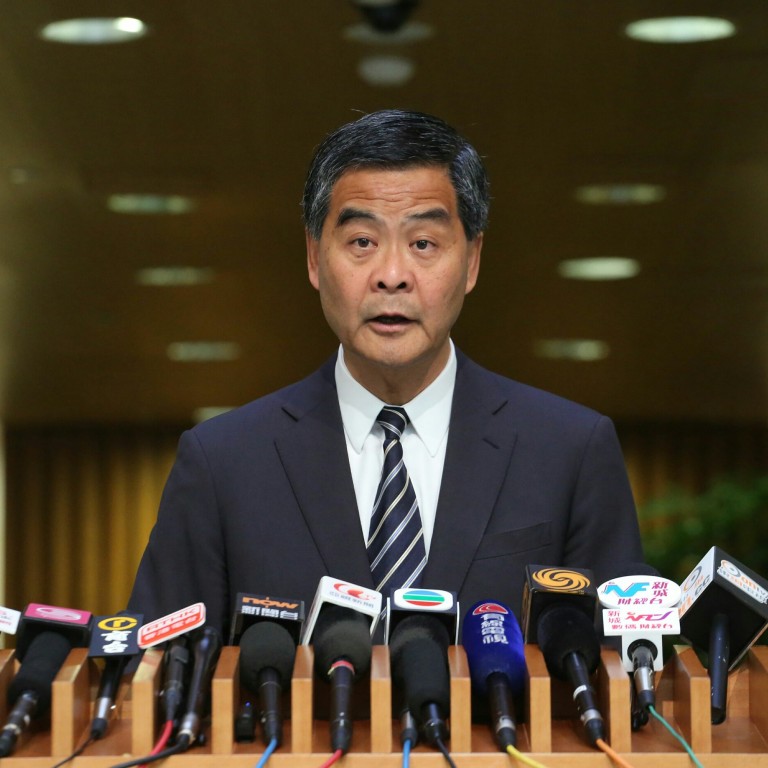
Hong Kong has no hands-off economic policy to ditch
The reasoning of this bumped-up estate agent who now conceives himself a leading intellectual light in economic theory is quickly plumbed. Here it is: "… to compete with places like Singapore."
Let's get two things straight about Singapore. The first has to do with a statistic bandied about in the hoopla of Singapore's 50th national day celebrations. It shows Singapore with a gross domestic product per capita of US$56,284 compared with only US$40,170 for Hong Kong.
Yes, but, among the other diversions of GDP in Singapore, about a quarter of it just vanishes out of sight as something called net trade surplus. To those who have, more shall be given.
When you measure what your average Singaporean gets for himself in personal consumption expenditure you turn the proportions the other way round, as the chart shows. We're so outdated here, you know.
Secondly, we are not in competition with Singapore and never have been.
Both Hong Kong and Singapore have grown fat as parasite economies on neighbouring states, providing services that these neighbours cannot or, for reasons of policy, will not provide for themselves.
It's mostly legitimate, I suppose, and as to what is not quite legitimate, well, we shall not use the money-laundering word. Oops, sorry, I just used it.
The point, however, is that the two cities perform these services in their separate spheres, Singapore in that of Indonesia and Malaysia, Hong Kong in China's sphere.
There really is not much overlap, nor much reason to rate either system as inherently better or worse when, in fact, they are very much the same in how they generate money through … no, I mustn't use that word again.
But back to C.Y. and his resolve that it is time for government to take a leading role in the city's big business decisions.
Since when has it not done so?
The entire physical structure of the city, the basic design and location of its buildings, its transport systems, its port facilities, its green spaces and much else is under the direct control of the government if not under its direct ownership. Even illegal structures exist only with government connivance.
All the major industries operate under government authority. Developers must have permission from the Lands Department, banks work under the supervision of the Hong Kong Monetary Authority, other financial operations under the Securities and Futures Commission and merchants must have clearance from a range of government agencies.
The biggest projects have also always been government projects, more so than ever just now with a costly bridge under construction to Macau, a costly high-speed railway under construction to a remote Guangzhou suburb and the airport wanting to spend upwards of HK$100 billion on a new runway.
From where does C.Y. then get this notion that government in Hong Kong has a hands-off economic policy?
I think I know what he has in mind. He has confused hi-tech with big business and vainly believes that he can turn this town into a Silicon Valley if only the Legislative Council will let him have his cherished innovation bureau. We all must have our impossible dreams, I suppose.
Meanwhile, significant initiatives and reforms in many spheres of the economy remain stalled because government will just not get around to making crucial rulings.
C.Y., your problem is not that you are hands off but that you don't know where to be hands on.

